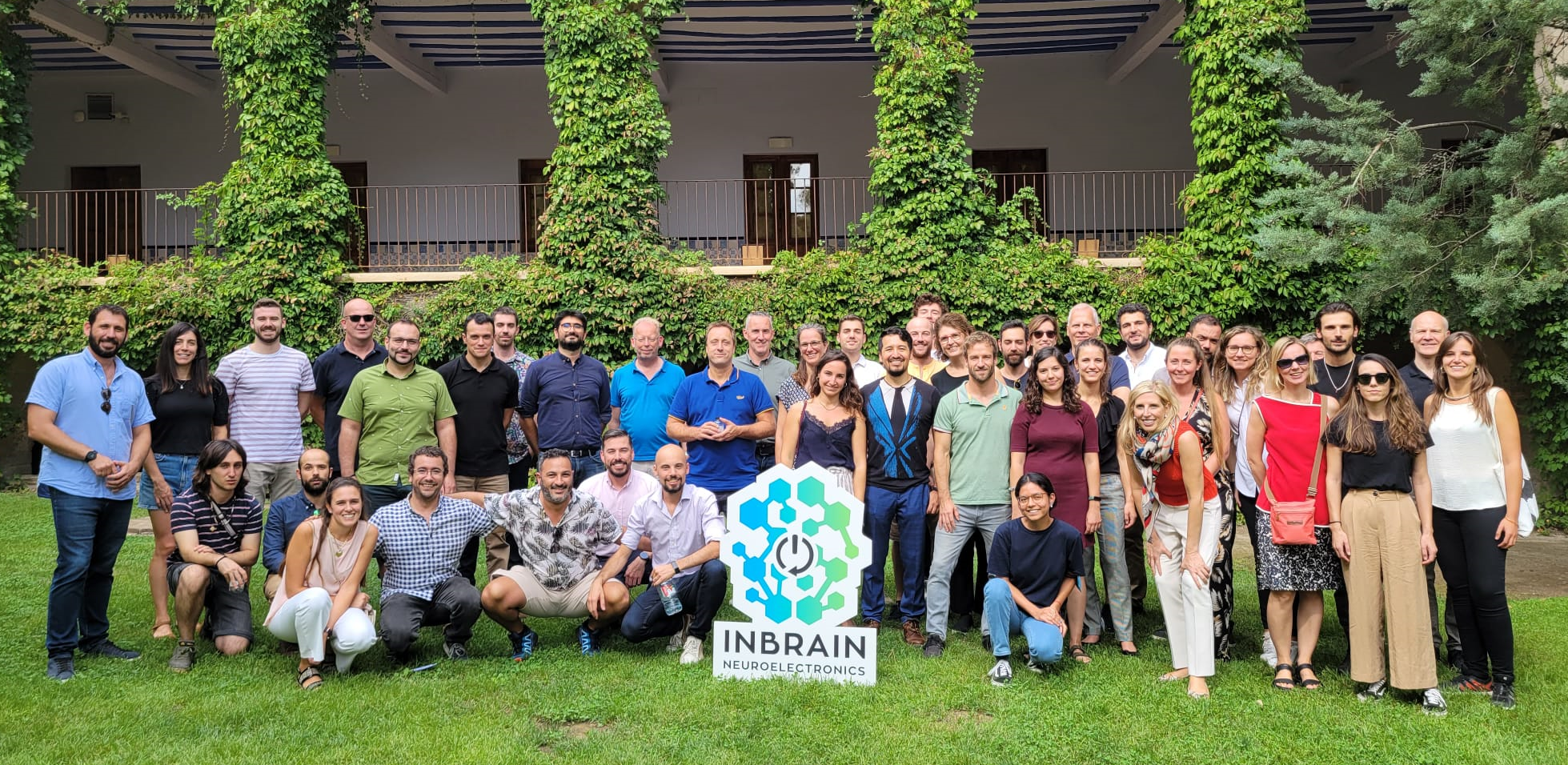Monday, 20 February 2023
INBRAIN Neuroelectronics wins El Periódico's innovation award for developing graphene-based brain implant technology
INBRAIN Neuroelectronics has won the Empresa + Innovadora prize from EL PERIÓDICO for its development of graphene-based chips implantable in the brain. The material, which is 200 times stronger than aluminum, flexible, and biocompatible, allows for less invasive and more effective brain implants for the treatment of neurological diseases such as Parkinson's, epilepsy, depression, and Alzheimer's. The first human clinical trial using the technology is set to begin later this year, marking the first time a graphene-based interface has been implanted in a person for high-precision tumour intervention.

INBRAIN Neuroelectronics, a spin-off company founded by researchers from the Catalan Institute of Nanoscience and Nanotechnology (ICN2), the Institute of Microelectronics of Barcelona (IMB-CNIM-CSIC) and ICREA, has been named the most innovative company in Spain by EL PERIÓDICO. Graphene, the thinnest material known to man, is 200 times stronger than aluminum, flexible, biocompatible, and conductive. These characteristics make it ideal for developing nanotechnology, and INBRAIN is using it to advance neuroelectronic therapies and medical technology.
The company, founded by researchers from ICN2, IMB-CNM-CSIC, is developing graphene-based chips that are implanted in the brain and can read and write information from and to the brain. The chips are less invasive than the platinum and iridium ones currently used and have more biomarkers, offering a higher probability of effectiveness. The devices collect information on brain activity and act accordingly, correcting deviations in neural circuits to reduce the symptoms of many neurological diseases such as Parkinson's, epilepsy, depression, and Alzheimer's.
The graphene chips are also useful for remote patient monitoring, optimizing healthcare resources, and even for possible interventions by neurosurgeons. Artificial intelligence plays a key role in this process, helping to identify pathological neural signals, relate them to symptoms, and program the chip for the most effective therapy possible. INBRAIN's first human clinical trial is set to take place later this year, in which they will put a graphene interface on a person for the first time to intervene in a tumor with high precision.
Thanks to its commitment to innovation, INBRAIN is competing with the largest companies in the sector and contributing to greater competitiveness in the European neuroscience market, as well as improving the quality of life for patients with brain diseases. The company's team of 50 professionals from 14 different countries includes scientists, doctors, engineers, and technology experts. "Receiving this recognition from EL PERIÓDICO has a huge motivational effect on our team," said CEO Carolina Aguilar.
"The neurosciences are in their infancy. Very little is known about the brain, and we have a real mission to understand it, given that it controls all the organs in the body," said Aguilar. The European Union has made a major commitment to neuroscience in the form of research and development funding programs, which INBRAIN benefits from alongside private financing to bring its projects to fruition.
For more information: El Periódico

